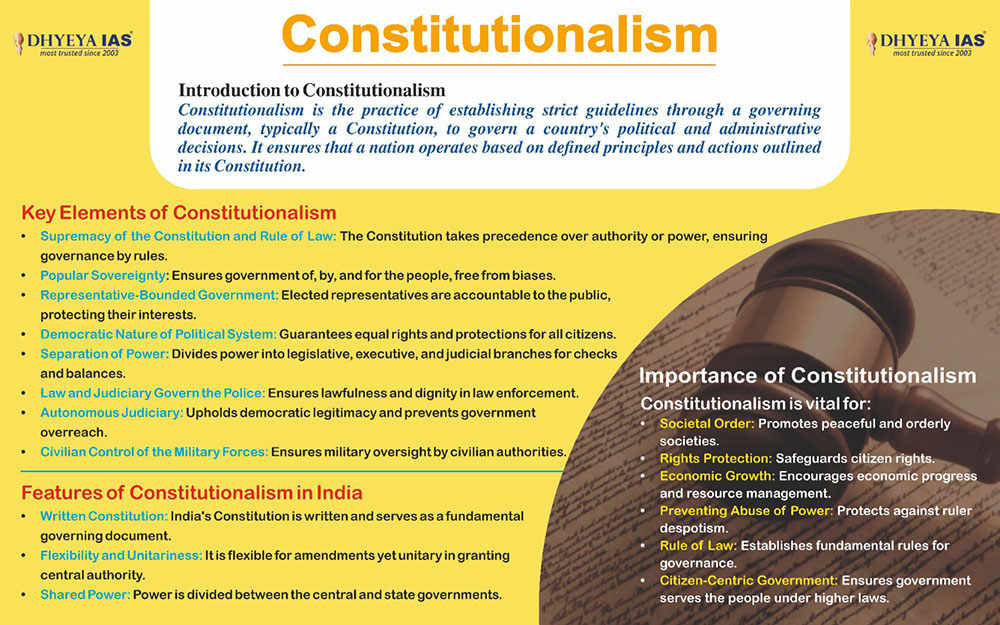
Introduction to Constitutionalism
- Constitutionalism is the practice of establishing strict guidelines through a governing document, typically a Constitution, to govern a country's political and administrative decisions. It ensures that a nation operates based on defined principles and actions outlined in its Constitution.
Key Elements of Constitutionalism
- Supremacy of the Constitution and Rule of Law: The Constitution takes precedence over authority or power, ensuring governance by rules.
- Popular sovereignty: Ensures government of, by, and for the people, free from biases.
- Representative-Bounded Government: Elected representatives are accountable to the public, protecting their interests.
- Democratic Nature of Political System: Guarantees equal rights and protections for all citizens.
- Separation of Power: Divides power into legislative, executive, and judicial branches for checks and balances.
- Law and Judiciary Govern the Police: Ensures lawfulness and dignity in law enforcement.
- Autonomous Judiciary: Upholds democratic legitimacy and prevents government overreach.
- Civilian Control of the Military Forces: Ensures military oversight by civilian authorities.
Features of Constitutionalism in India
- Written Constitution: India's Constitution is written and serves as a fundamental governing document.
- Flexibility and Unitariness: It is flexible for amendments yet unitary in granting central authority.
- Shared Power: Power is divided between the central and state governments.
Importance of Constitutionalism
Constitutionalism is vital for:
- Societal Order: Promotes peaceful and orderly societies.
- Rights Protection: Safeguards citizen rights.
- Economic Growth: Encourages economic progress and resource management.
- Preventing Abuse of Power: Protects against ruler despotism.
- Rule of Law: Establishes fundamental rules for governance.
- Citizen-Centric Government: Ensures government serves the people under higher laws.
